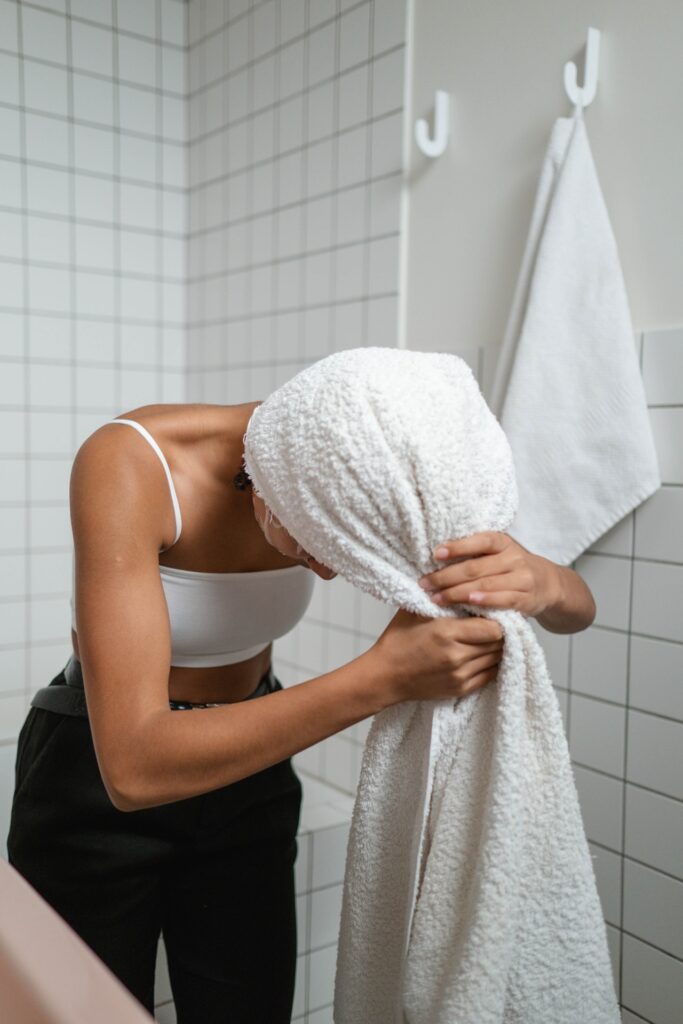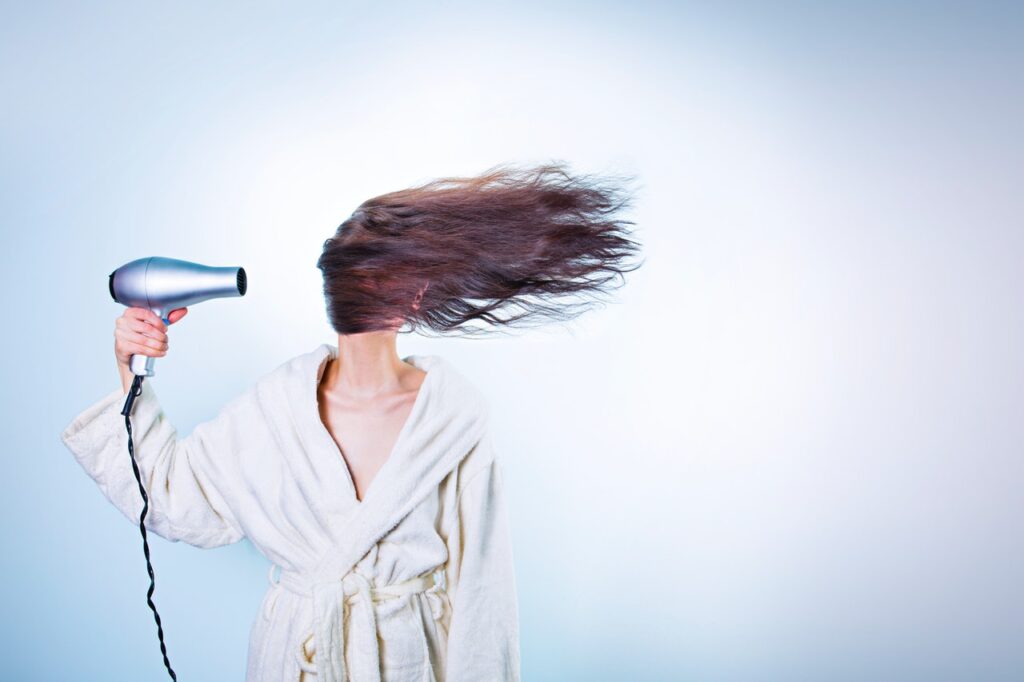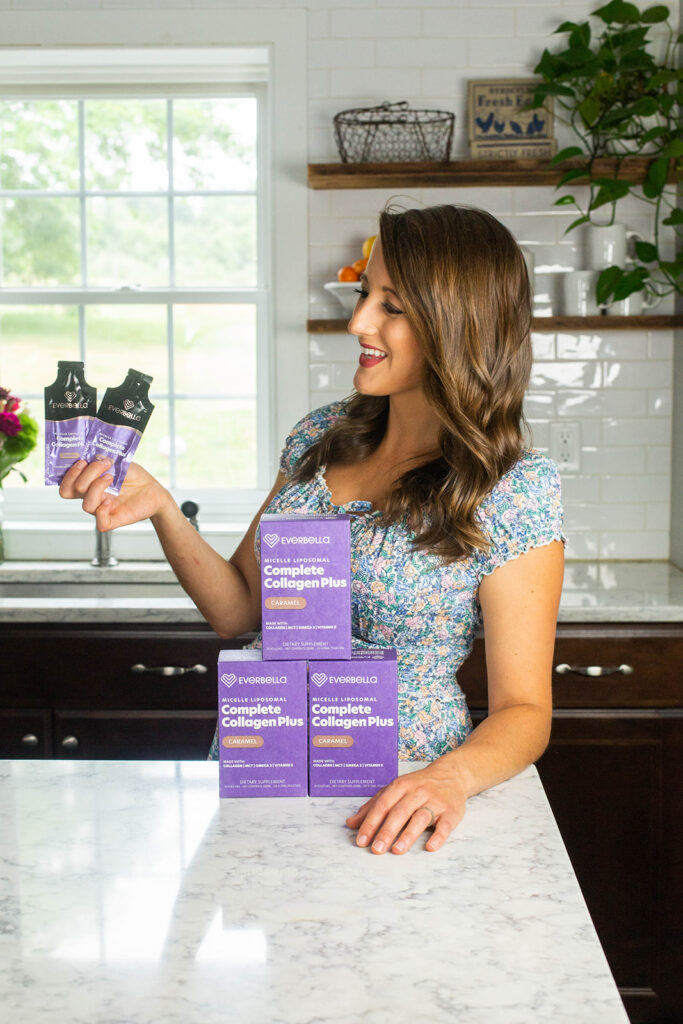As I’ve learned how to care for my hair over the years, I’ve realized that there are so many things to consider. You know I talk about diet and nutrition all the time for healthy hair, but I don’t often talk about the way I care for my hair on a day-to-day basis aside from that.
The truth is, it’s been a lot of trial and error. I’ve overwashed it, I’ve underwashed it, I’ve tried dozens of different products, I’ve stopped using heat… Even still, I struggled with brittle and breakable hair.
It turns out, I was overcomplicating things. Let me share a few of my simplest hair tips that helped me prevent breakage and split ends, and left me with luscious and healthy hair!
Your hair is weakest when it’s wet – wet hair tends to be stretchier and more elastic, which can result in easy breakage without care. This means that as you run a brush through your hair post-shower, there is great potential for damage!
For those with straight, thinner texture, brushing wet hair can cause stretching, breakage, and can even pull it right out of its root! This may result in signs of breakage and split ends when the hair dries. On the other hand, those with curly, more coarsely texture, know the challenges of trying to brush hair when it’s not wet. For these individuals, it can actually be safer for it to be brushed when it’s had a little hydration.
I know how annoying it can be to try and tackle tangles after your hair has dried. Which is why I have a couple of tips that might help ease your pain:
You still might have to fight through some tangles later. However, it can greatly benefit your hair to practice a little patience, and to be incredibly gentle with your hair, especially while it’s wet.
Because your hair is so vulnerable when it’s wet, it’s important to treat it as gently as possible. As our hair drips wet after a shower, many of us may opt to wrap it up in a heavy towel to soak up some of that extra moisture. However, this method of drying hair can actually cause further damage. This can happen for a couple of reasons.

I previously mentioned that our hair is more prone to damage while wet because it’s stretchier and more elastic. Now, imagine the weight of a heavy bath towel, pulling on our scalp and tugging at our hairs as they are twisted into a towel! It makes sense that this technique might actually be causing some damage. Additionally, the fibers in bath towels tend to be rough, and abrasive on hair. The hairs can catch on the rough fibers, and can easily be pulled from their follicle.
So, without a bath towel, how else can you dry your hair? Experts recommend that a soft, cotton t-shirt or small microfiber towel is the best way to soak up the extra water in your hair after a shower! You’ll still want to be gentle, but ultimately, these options will be much less abrasive as it dries. Avoid rubbing or ringing it too aggressively, and this will be a much safer option to protect the quality of your luscious locks.

Using heat on your hair is yet another way to cause damage, if you’re not careful. Using heat is not going to compromise itss health right off the bat, it’s the excessive use of heat, and excessive temperatures that can be the most problematic. Heat can cause the cuticle of our hair (the protective outer layer) to lose moisture, become brittle, and make it susceptible to damage.
Just like our skin needs to be protected from the heat of the sun, our hair needs to be protected from the heat of hot showers and styling tools. So, follow these tips if you want to prevent it from being fried!
I used to crank my styling tools to the maximum temperature, but not anymore! And, I try to embrace my natural texture more often to give it a little bit of a break. Providing your hair just a little bit of protection can make all the difference in preventing damage.
Of course, if you know my story, you know that collagen has been a game changer for my hair. In just 8 months of taking Complete Collagen+, my hair underwent a transformation. My dry, brittle, and thin hair bounced back, and it was obvious that it was thicker, healthier, and stronger than ever before.

That’s because collagen is an important structural component of most of the tissues in our body, from our bones and skin, of course, to our hair! We need a lot of collagen to keep ourselves looking and feeling our best. And, considering that natural collagen production drops off around age 20, and continues to decrease over time, it’s important for us to continue to optimize our collagen intake as we age. [1]
After years of trying expensive product after product, I realized that I could be doing a whole lot more for my hair by doing less. By using these simple tips to protect it from damage, you could be on track for a transformation. And it doesn’t hurt to give yourself another boost with Complete Collagen+! Give your hair the love and nutrients it needs to thrive!